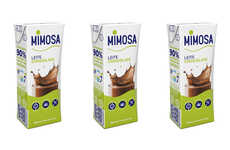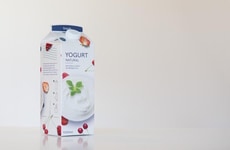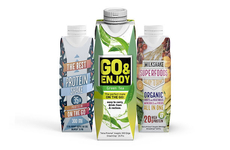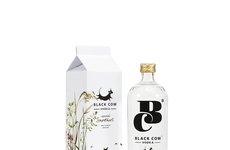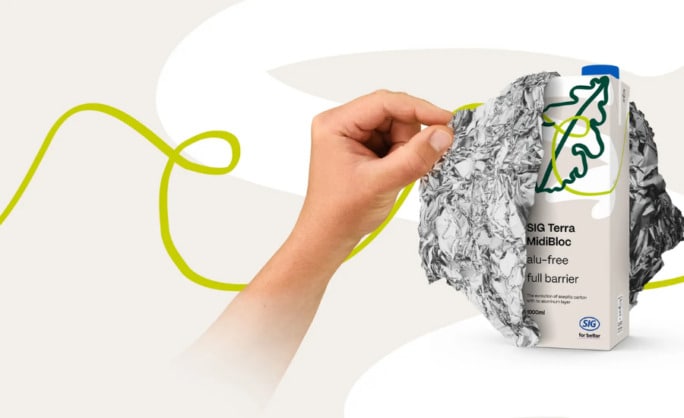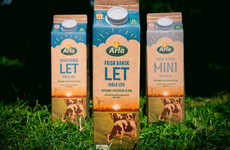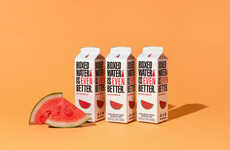
This SIG Aluminum-Free Full Barrier Solution Reduces Material Use
Michael Hemsworth — May 27, 2025 — Eco
This SIG aluminum-free full barrier solution has been announced by the packaging specialist as an innovation for multi-serve aseptic beverage cartons as a way to reduce their carbon footprint. The solution replaces the traditional aluminum layer found in carton-style packaging that usually accounts for 5% of the design, but accounts for as much as 25% of its overall carbon footprint. The new layer is made with more than 80% paper and will reportedly cut the carbon footprint of standard carton packaging by as much as 61%.
Chief Markets Officer Christoph Wegener spoke on the SIG aluminum-free full barrier solution saying, "With our full barrier material with no aluminum layer, we are offering a powerful differentiator and embodiment of sustainability in aseptic carton packaging, unlocking new opportunities for packaging sensitive product categories such as plant-based products, juices, and nutritional beverages."
Chief Markets Officer Christoph Wegener spoke on the SIG aluminum-free full barrier solution saying, "With our full barrier material with no aluminum layer, we are offering a powerful differentiator and embodiment of sustainability in aseptic carton packaging, unlocking new opportunities for packaging sensitive product categories such as plant-based products, juices, and nutritional beverages."
Trend Themes
1. Aluminum-free Packaging - The transition to aluminum-free packaging highlights an innovation in reducing carbon footprints for aseptic beverage cartons significantly.
2. Sustainable Beverage Containers - This trend focuses on using over 80% paper in beverage containers to drastically lower carbon emissions compared to traditional packaging solutions.
3. Plant-based Product Packaging - An opportunity arises in the packaging of sensitive product categories like plant-based beverages without relying on traditional aluminum barriers.
Industry Implications
1. Eco-friendly Packaging Industry - Innovations in eco-friendly packaging, such as aluminum-free aseptic cartons, present a shift towards more sustainable material use.
2. Beverage Industry - As the beverage industry adopts new packaging solutions, a significant reduction in packaging-related carbon footprints can be achieved.
3. Plant-based Foods and Beverages - The growing plant-based foods and beverages sector can benefit from sustainable packaging that preserves product integrity without aluminum.
7.3
Score
Popularity
Activity
Freshness

